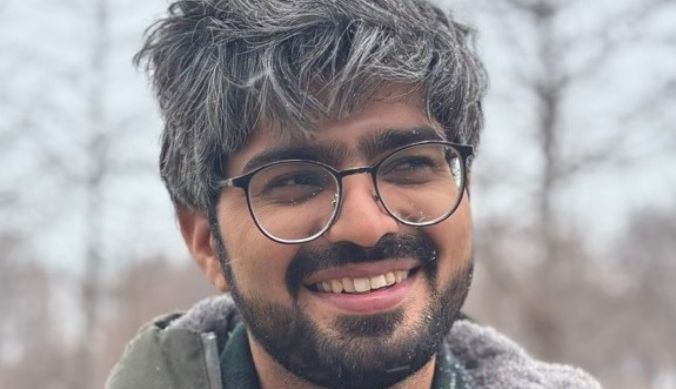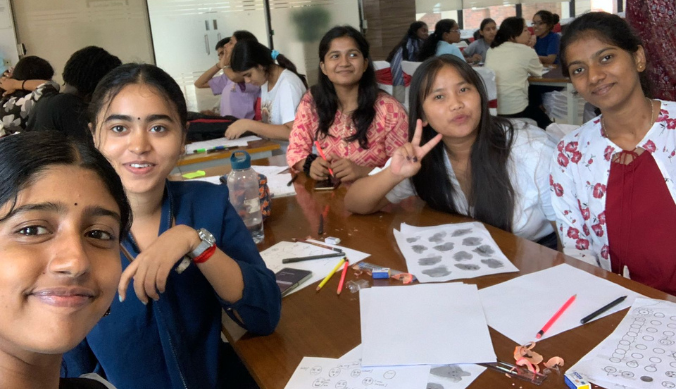Charting Paths in Public Health: Insights and Aspirations
In this insightful interview with Yukti Arora, Prof. Poornima Prabhakaran, Director, Centre for Health Analytics, Research and Trends, TSB, talks about her research interests and how she envisions CHART contributing to the field of health analytics and research

Yukti Arora
15 March, 2024 | 5m readCould you provide some insights into your professional journey and what motivated you to pursue a career in Public Health?
My journey began three decades ago with a medical degree from Bangalore Medical College. Initially aiming to become a practising paediatrician, I explored various roles in hospitals in Bangalore and Delhi after failing to secure a residency in Pediatrics. In 1997, I secured a position as a Research Officer in the Department of Endocrinology at AIIMS, New Delhi. This opportunity exposed me to recruiting patients, recording data, and conducting trials on anti-diabetic drugs, sparking my research interest.
Subsequently, I gained invaluable experience at the Population Health Research Institute, McMaster University in Hamilton, Ontario, Canada. Inspired by this experience, I pursued formal training in epidemiology and health research methods. Encouraged by my spouse, who advocated for preventive and social medicine, I enrolled in the Master’s programme in Epidemiology at the London School of Hygiene and Tropical Medicine. Later, I was selected for a doctoral programme in the School of Social Medicine at the University of Bristol, UK, laying the foundation for my research career.
Your earlier research focused on a life course approach to chronic diseases. How has this background influenced your current work in environmental health research?
I have spent nearly 15 years working in pregnancy and birth cohort studies. These longitudinal investigations start by enrolling pregnant women at different stages of pregnancy and follow their offspring from birth into childhood, adolescence, and sometimes adulthood. Through these studies, we delve into how parental experiences, such as nutrition, psychosocial factors, and environmental exposures, influence the health and disease profiles of their offspring.
This work brought me back into the space I had always wanted to be in – working around childrens’ health albeit from a different lens! The work has allowed me to focus on children’s health from a holistic perspective, examining how various factors in their immediate surroundings impact their long-term well-being. This lies at the core of epidemiology, allowing us to unravel the intricate interplay of different risk factors on health outcomes and identify strategies to prevent or address these risks for improved health outcomes. Moreover, it provides a unique opportunity to translate research findings into policies and programs aimed at enhancing population health.
It was during one of the conferences of the Developmental Origins of Health and Disease (DoHAD) that I realised a significant gap in research among birth cohorts in India. Despite the presence of several research groups, few were investigating the environmental determinants of child health and disease. In contrast, this area of research was rapidly expanding in other countries, with studies highlighting the significant impact of factors such as air pollution, chemical exposures, and poor sanitation and hygiene on child health.
During my involvement with the New Delhi Birth Cohort, established in 1969 with around 8000 pregnant women, I gained invaluable experience in conducting cohort studies using a life course approach. However, I noticed a gap in environmental research among birth cohorts in India. Inspired by growing global research on the environmental determinants of child health, such as air pollution and poor sanitation, I initiated the first workshop on children’s environmental health in 2015, with support from the WHO Collaborating Centre for Children’s Environmental Health, University of Queensland, WHO SEARO office, India and the Indian Academy of Pediatrics. This collaborative effort sparked a new wave of research in this area among various groups, signalling a shift towards understanding and addressing environmental influences on children’s health. With climate change increasingly on the agenda, there is growing interest in studying its impacts on health, not just for children but for adults as well, following the endorsement of the Paris Agreement in the same year.
What pressing issues are you addressing at CHART, and what impact does your research have? How do you integrate data analytics and research trends into epidemiology to shape public health policies?
Currently, in CHART, our research involves assessing the impact of air pollution on child and adult health through collaborations with reputed national and international groups, with funding support from the Swedish research agency. We have bridged the gap in air pollution exposure assessment by developing an “ensemble” model that surpasses traditional methods, integrating satellite data, ground monitoring stations, road transport networks, emission inventories, and industrial locations. This unique model allows us to investigate associations between particulate matter (PM 2.5) exposure and various health outcomes in both children and adults, contributing to India’s evidence base on air pollution’s health effects.
Funded by DBT/Wellcome Trust India Alliance, our second project explores coincident nutritional, environmental, and psychosocial determinants of child growth and development in urban Bengaluru and rural Haryana. Additionally, we evaluate a significant government-led programme in Andhra Pradesh, facilitating the transition of 6 million farmers to organic, pesticide-free farming, aiming to document the health co-benefits of this shift by studying both children and adults in farming households.
In the climate change arena, I spearheaded the research sub-group of the WHO civil society working group on climate and health. Our efforts culminated in a report released at the WHO pavilion during the Glasgow COP 26 in 2021, shedding light on global trends in climate and health research from 2009 to 2019. This experience has stimulated more work in the climate health space and motivates us to expand our focus to vulnerable groups, particularly coastal communities, impacted by acute climate events.
Overall, my medical and epidemiological background informs our nuanced approach to not just individual research questions but also to build the vision of our work at CHART. Understanding air quality’s diverse health impacts, from respiratory to cardiovascular effects and child growth, guides our rigorous epidemiological methods and shapes our future research vision. We are also scaling our efforts to document the health impacts of climate change in India.
What challenges do you face in your epidemiological studies on environmental determinants such as air pollution, climate change, water, sanitation, etc., and how do you approach them?
Translating evidence into effective policy-making remains challenging. Closing feedback loops with policy-makers involved in creating new programs/policies or revising old ones is often difficult due to the absence of health or public health representatives in technical consultations. However, things are steadily changing, and we hope our research finds a suitable use case in India promptly. An important and pervasive problem for researchers in India is access to data. Availability and access to high-quality datasets for contextual and timely research must receive the greatest focus at all levels—administrative, technical, and government machinery—to enable us to leverage optimum mileage from national datasets.
What role do you foresee Ashoka playing in shaping your professional journey, and could you also elaborate on your vision and plans for the future of the Centre?
Finding a home at Ashoka could be a turning point for me and my team. We have been fortunate to build a passionate and dedicated group of researchers, with a strong representation of women. We are excited about the diverse opportunities within Ashoka to grow our dialogues and research questions with multi-disciplinary experts from social sciences, economics and molecular biology besides leveraging the power of big data. The rich academic environment, the opportunity to work with young and inquisitive minds among the growing pool of undergraduate and graduate students besides the opportunity to stimulate trans-disciplinary Ph.D.s holds great promise. I am excited about the prospects awaiting us in the Trivedi School of Biosciences and the larger Ashoka community to do impactful work. Looking ahead, I envision CHART becoming a hub for impactful research, leveraging digital solutions for integrated analytics in health, genomics, economics, and environmental health. We also aim to build capacities for future researchers through structured training programs. We welcome discussions with fellow Ashoka colleagues to join us on this journey!
(Interview conducted by Dr Yukti Arora, Senior Manager, Academic Communications, Research and Development Office, Ashoka University)
Study at Ashoka













